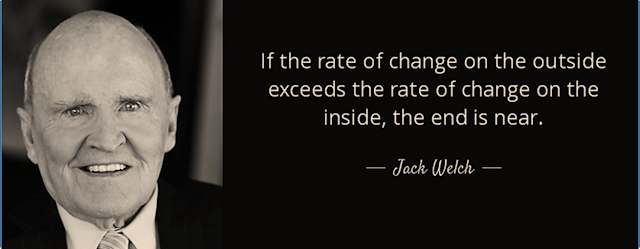Stop Apologizing for Change
If the rate of change on the outside exceeds the rate of change on the inside, the end is near.—Jack Welch
Managers who apologize for any and all changes the team must accommodate are sowing the seeds of low morale and discouragement.
Every time they introduce a new policy, product, system, rule, or project, they apologize for it. They imply that change is harmful to the well-being of the team and that change is something we would hope someday to not have to suffer so much of. This is done with the unconscious motive of seeming compassionate, and being liked, but it results in creating a team of victims, and it dramatically lengthens the time it takes for the team to assimilate and become comfortable with a change.
A true leader does not apologize for change. A true leader does not feed into the fear that so easily accompanies change. Instead, the leader is an advocate for the change. A leader continuously communicates the benefits of an ever-changing organization. A leader endorses an organization that is continuously reinventing itself to higher and higher levels of productivity and innovation.
Every change is made for a reason. Every change was decided upon because the positives of the change outweigh the negatives. So, if you wish to be a highly motivational leader, you simply learn the positives, through and through. You find out everything there is to know about the upside of the change, because that’s what leadership is. Leadership is communication of the upside.
Unconscious managers are often as uncomfortable with changes as their own people are, so they constantly apologize for them, which furthers the impression that the team is disconnected completely from the mission of the company.
But not you. You are a leader, and so you will always reconnect the team to the mission of the company. Change will not be apologized for.
Why apologize for something that will improve the strength of the organization? Every change is made (every last one of them) for the sole purpose of strengthening the ultimate viability of the organization. That’s why you advocate the change. That’s why you sell it to your team.







0 Yorumlar